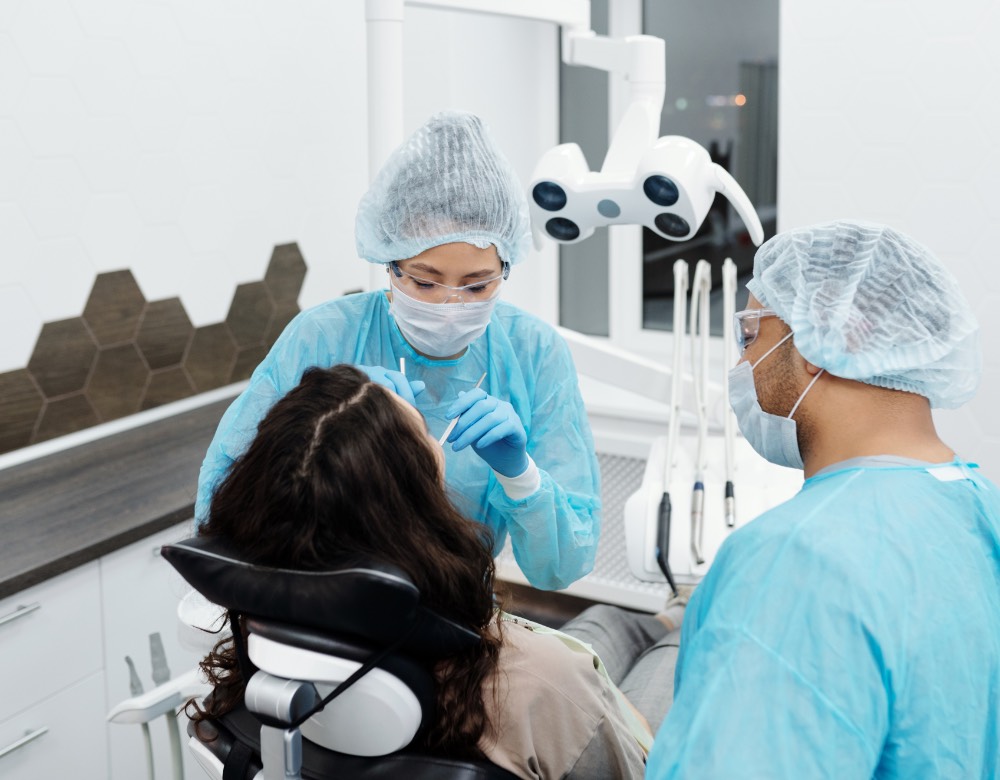Dental emergencies are among the unanticipated difficulties that require quick thinking and prompt treatment. An unexpected toothache or the unintentional loss of a filling can send us into a state of discomfort, so it’s important to know what to do in these instances. This essay explores the topic of dental crises, revealing the mysteries around the most frequent 7 situations and offering guidance on how to resolve them. Our goal is to equip readers with the necessary knowledge to address dental emergencies head-on as we navigate the complexities of oral discomfort. That way emergency dentistry Calgary NE, even in the face of unforeseen dental misfortunes, a brilliant smile will triumph.
7 Common Dental Emergencies and Methods To Handle Them
Dental emergency dentistry Calgary NE can be distressing and often occur when least expected. Whether it’s a sudden toothache or a knocked-out tooth, knowing how to handle common dental emergencies can make a significant difference in preserving oral health. In this article, we will explore the top 7 common dental emergencies and provide practical guidance on how to manage them effectively.
- Toothaches
Toothaches are a prevalent emergency dental, usually caused by tooth decay, infection, or trauma. If you experience a toothache, rinse your mouth with warm water and gently floss to remove any trapped debris. Over-the-counter pain relievers can help manage the pain, but it’s crucial to schedule an appointment with your dentist to identify and address the underlying cause.
- Chipped or Broken Teeth
Accidents or injuries can lead to chipped or broken teeth, causing pain and potential long-term damage. To lessen swelling, use a cold compress, rinse your mouth with warm water, and save any shattered tooth fragments. Make an emergency appointment with your dentist right now. In some cases, dental bonding or a crown may be recommended to restore the tooth’s structure.
- Knocked-Out Tooth
A knocked-out tooth requires prompt action for the best chance of successful re-implantation. Hold the tooth by the crown (not the root), rinse it gently without scrubbing, and try to reinsert it into the socket. If that’s not possible, place the tooth in a container of milk or saliva and seek immediate dental attention. Time is crucial in such cases, and the sooner you receive professional care, the higher the likelihood of saving the tooth.
- Lost Filling or Crown
Pain and discomfort may result from the exposed sensitive inner layers of the tooth caused by a missing dental filling or crown. If this happens, try to place the filling or crown back in place using dental cement or temporary dental adhesive available at pharmacies. Super glue should not be used as it can lead to additional damage. Contact your dentist promptly to schedule a repair or replacement.
- Abscessed Tooth
An abscessed tooth results from a bacterial infection, often causing severe pain, swelling, and a pimple-like bump on the gums. Rinse your mouth with a mild saltwater solution to help alleviate pain and draw out some of the infection. However, immediate professional attention is essential to drain the abscess and prevent the infection from spreading.
- Bleeding Gums
Persistent bleeding gums, especially when accompanied by pain and swelling, may indicate gum disease or trauma. Gently rinse your mouth with warm saltwater and apply a clean, damp cloth or gauze to the affected area to control bleeding. Schedule an appointment with your dentist to address the underlying issue and prevent further complications.
- Jaw Injuries
Accidents or blows to the face can result in jaw injuries, causing pain, swelling, and difficulty in opening or closing the mouth. Apply a cold compress to reduce swelling and visit the emergency dental room or your dentist promptly for a thorough examination. Jaw injuries may require imaging, and a treatment plan will be tailored to the specific situation.
Being prepared to handle common dental emergencies can mitigate pain, prevent further damage, and improve the chances of successful treatment. However, it’s crucial to remember that self-care measures are temporary solutions, and professional dental care is necessary to address the root cause of the issue. Regular dental check-ups and good oral hygiene practices also play a vital role in preventing dental emergencies. If you experience a dental emergency, don’t hesitate to contact your dentist for guidance and prompt care. Your oral health is an integral part of your overall well-being, and timely intervention can make a significant difference in preserving your smile.
The Final Thought
Dental emergency dentistry Calgary NE can cause an unexpected discord to disturb the harmony in the great scheme of our everyday existence. But with the knowledge and understanding we’ve gained from our examination of the top 7 dental crises, we can confront these difficulties head-on. Every emergency dental, from a chronic toothache to the sudden loss of a crown, presents a chance to demonstrate the depth of our dental care readiness. Remember that the keys to navigating these turbulent seas are prompt action and the advice of dental professionals.
Therefore, let us take this acquired knowledge and our strengthened resolve to advocate for the preservation of our oral health with us as we wrap up our exploration of the world of dental emergencies. After all, a radiant smile, even in the face of adversity, is a testament to our enduring commitment to dental health.

